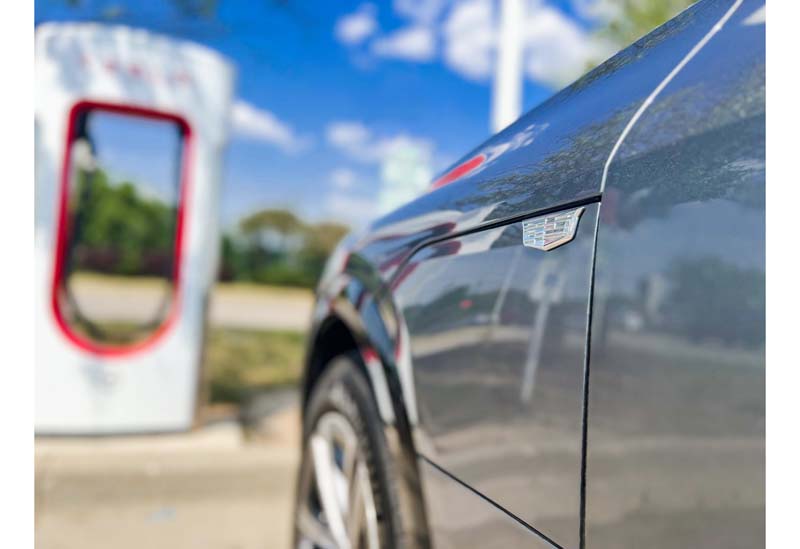In a landmark move for electric vehicle infrastructure, Cadillac China has integrated Tesla’s extensive charging network into its IQ app. As of today, Cadillac EV owners can seamlessly access hundreds of Tesla Supercharger and Destination Charger stations across China.
Cadillac becomes the first automaker in China to establish an interconnected charging collaboration with Tesla. The partnership provides IQ app users access to over 600 Tesla charging locations containing state-of-the-art 120 kW Superchargers and 21 kW Destination Chargers.
This charging network integration allows Cadillac EV drivers to easily locate nearby Tesla stations, navigate to them, charge, and make payments all through the intuitive IQ app. Essentially, Tesla’s robust fast charging infrastructure now augments the public stations already available via the IQ charging map.
Cadillac IQ members can offset charging fees using their free public charging mileage quota. Owners can also redeem additional public charging mileage through the app’s online store. This perk makes experiences at Tesla stations even more affordable.
To ensure a smooth user experience, Cadillac recommends IQ app users upgrade to the latest Pure Electric OS V3.0 via an OTA update, update likely optimizes charging protocols and handshaking to pair perfectly with Tesla hardware.
The openness to share networks demonstrates how serious legacy automakers like GM and new entrants like Tesla are about proliferating EV charging access. This cooperation benefits all electric vehicle drivers in China by filling gaps in the nation’s charging map.
Cadillac’s move also hints at a willingness among automakers to collaborate on charging infrastructure despite fierce vehicle sales competition. Shared stations capable of serving different brands simplify charging for consumers.
As EV adoption accelerates globally, partnerships like this one light the path forward. Tesla’s industry-leading Superchargers become even more valuable as other automakers leverage the network. For Cadillac, the perk makes its EVs more appealing to Chinese buyers. This win-win cooperation may set the stage for more interoperability between charging networks worldwide.
